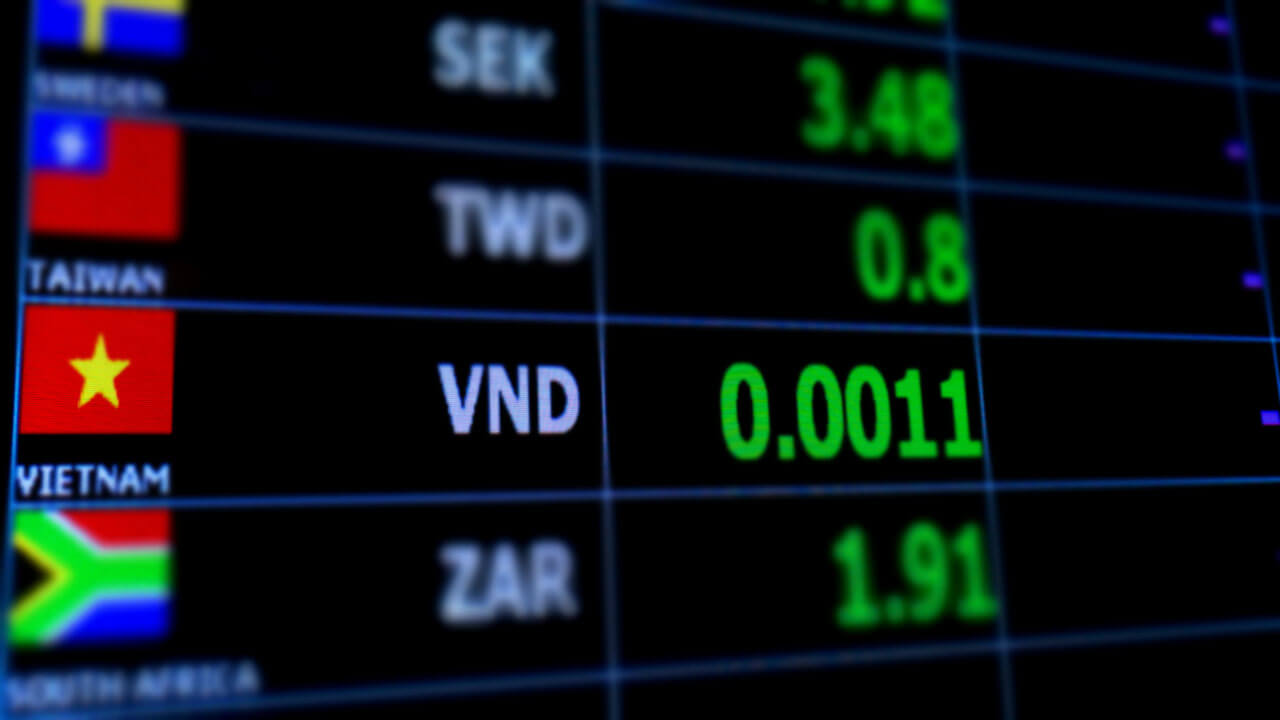Whether one is planning to engage in forex trading in Vietnam or wanting to explore the country, they will find themselves exchanging foreign currency to Vietnamese Dong.
By understanding the pros and cons involved in exchanging different currencies to VND, one can make more informed decisions about how, where, and when to exchange the currency.
In this article, we take a look at the top pros and cons of exchanging foreign currency to Vietnamese Dong.
Pros
Trade the forex market in local currency
Exchanging foreign currency to VND gives traders the advantage to trade the forex market at a local level. It allows traders to actively participate in the local economy. Moreover, it also eliminates the need to convert currencies multiple times and in turn reduces transaction costs. There are a few forex brokers that allow traders to trade forex in VND.
Though it is important to note that most leading forex brokers either have USD or AUD as their default currency because both of them are globally accepted major currencies. Also, using one default currency allows brokers to simplify pricing and commissions for their clients while also decreasing the conversion fees.
Better accessibility and convenience
When traveling through Vietnam, one will notice that many big hotels and restaurants cities readily accept USD as payment. But the more one travels in the interiors of Vietnam, the less places they will find that accept USD.
As a result, exchanging to Vietnamese Dong provides both accessibility and convenience, especially for tourists who are looking to explore the country.
Leading banks, airports, gold shops, and exchange bureaus offer quick currency exchange, allowing people to convert currency swiftly.
Simplified financial transactions
When one exchanges foreign currency to Vietnamese Dong, it simplifies all the financial transactions for them in Vietnam and makes payments more straightforward and seamless. There is no need to constantly convert foreign currency every day or check the currency conversion rate everyday– which in turn saves time and money.
Support local business
When one exchanges foreign currency in Vietnam, it allows them to pay local businesses in their local currencies and support them.
It's important to note that while payments in USD are accepted at many places in Vietnam which helps avoid the currency conversion fees for end customers, local businesses would still have to pay the conversion fee to get the money converted to Dong.
Get favorable exchange rates
Currency exchange rates fluctuate 24/7, but it is possible to get favorable conversion rates by doing in-depth research and selecting the right place for currency conversion. Keeping an eye on the market and looking for reputable exchange bureaus can help one identify the right place and time to exchange their currency.
Remember timing is everything when it comes to currency exchange.
Stability
Vietnamese Dong has been considered as one of the most stable currencies in Asia in the last few years. One of the major reasons for that is the State Bank of Vietnam maintaining a well-managed exchange rate regime. This stability allows people to confidently convert foreign currency to Vietnamese Dong.
Cons
Converting to VND limits forex trading
As mentioned above, most forex brokers consider USD or AUD as their default currency because these are globally accepted major currencies. Keeping a default currency also simplifies spreads and pricing offered by brokers.
Signing up with these forex brokers and funding the account with VND would mean converting the currency again to USD to AUD which would attract additional conversion fees.
Instead, forex traders can directly fund their trading accounts without converting it to VND to decrease conversion fees and simplify their trading experience.
Limited acceptance of Dong outside of Vietnam
For travelers, it's important to keep in mind the very limited acceptance of VND outside of Vietnam. That means, if they have any Dong remaining after their trip, they may find it challenging to get Dong converted back to their currency, especially in countries around the world where Dong is not that commonly traded. This could also lead to an unfavorable exchange rate for the conversion.
As a result, travelers should only convert as much currency as they need at the moment to ensure there is no surplus.
Security
Due to the low exchange rate of Dong, one can end up with a large amount of Dong when converting from a major currency. For instance, let's assume 1 AUD=15,600 VND. That means if one was exchanging 100 AUD at an exchange counter, they would have approximately 1,560,015 Dong in cash with them (There may be some deductions for conversion and transaction fees).
Carrying large amounts of cash can make one more prone to become a victim of theft and pickpockets. That is why, one should exercise caution and use only reputable currency exchange services.
Final words
There are both pros and cons associated with exchanging foreign currency to Vietnamese Dong. The decision to exchange or not will depend on the purpose behind the conversion and the timing of it.
For people planning to exchange currency to VND just for forex trading, it's better to directly convert the currency into USD or AUD to start trading the forex market without excessive conversion costs.
Disclaimer: All material published on our website is intended for informational purposes only and should not be considered personal advice or recommendation. As margin FX/CFDs are highly leveraged products, your gains and losses are magnified, and you could lose substantially more than your initial deposit. Investing in margin FX/CFDs does not give you any entitlements or rights to the underlying assets (e.g. the right to receive dividend payments). CFDs carry a high risk of investment loss.




